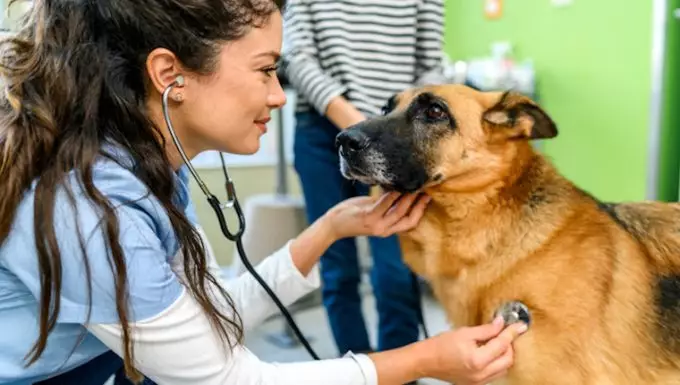Liver and gallbladder cancer in dogs poses a heartbreaking challenge for both pets and their owners. This complex condition can appear insidiously, often with no clear cause. Affecting breeds such as Golden Retrievers, German Shepherds, and Labrador Retrievers more frequently than others, it’s crucial for dog owners to recognize the symptoms and take timely action. While the scientific community is still deciphering the genetic factors and environmental influences leading to these malignancies, awareness can empower pet owners to seek proactive treatment and support.
Recognizing the Symptoms
The symptoms of liver and gallbladder cancer are varied and can mimic other conditions, making diagnosis a critical step. Common signs to watch for include a sudden shift in your dog’s energy levels, a noticeable decline in appetite, and gastrointestinal disturbances such as vomiting or diarrhea. Lethargy should never be taken lightly; if your dog is less active than usual or showing signs of discomfort, it could indicate a serious underlying issue.
Moreover, the appearance of jaundice—characterized by a yellowing of the eyes or skin—can signal liver distress. Increased thirst and urination, coupled with significant weight loss, should raise red flags; these symptoms may hint at a decline in your dog’s overall health. If you notice any combination of these indicators, don’t hesitate to contact your veterinarian for evaluation.
The Diagnostic Journey
When a dog presents with symptoms indicative of liver and gallbladder cancer, a comprehensive approach is essential for accurate diagnosis. Your veterinarian will begin by conducting a thorough interview about your dog’s symptoms and medical history. This inquiry is especially critical for breeds like Goldens and Shepherds, which may have breed-specific health concerns.
Physical examination plays a pivotal role; your vet will palpate the abdomen to identify any abnormal masses or tenderness. Following this, blood work and urine tests are standard to assess liver function and other biomarkers. Advanced imaging techniques—such as X-rays and ultrasounds—can also provide paramount insights, helping visualize internal structures and potential tumors.
Each step in this diagnostic process is not just routine; it’s a journey of discovery toward understanding what lies behind the troubling symptoms.
Treatment Options: A Multidimensional Approach
Upon confirming the diagnosis, treatment will largely depend on the specific type of tumors diagnosed. Surgery is often a frontline method, with the goal of removing tumors that pose immediate threats. In some cases, this may necessitate the removal of a portion of the liver or gallbladder entirely, which brings its own set of challenges. Yet, for many dogs, this intervention can offer a lifeline.
Chemotherapy may also be considered as part of the treatment arsenal, particularly if the cancer is deemed to be aggressive or pervasive. Medication to support liver functions and manage symptoms plays an equally vital role in a dog’s treatment journey. As a responsible owner, adhering strictly to your veterinarian’s prescribed regimen is imperative for the best chances of recovery.
Creating a Healing Environment
As your furry companion embarks on their recovery journey, the home environment becomes paramount. A tranquil and stress-free space can significantly contribute to their overall well-being. Limiting strenuous activity and ensuring access to comfortable resting spots can make a profound difference in their recovery.
Regular veterinary check-ups are essential during this period. Monitoring blood levels and overall health allows for adjustments in treatment plans as needed, ensuring your dog receives the best care possible. Your active involvement alongside your vet enhances the prospect of successful management of the condition.
In any journey marked by illness, emotional resilience and vigilance are key. The reality of caring for a dog facing liver and gallbladder cancer can be daunting, but through informed action and compassionate care, a healing path can emerge. Seek support from fellow dog owners and veterinary professionals—your dog’s fight against the disease can indeed be a shared journey, laden with love and hope.

